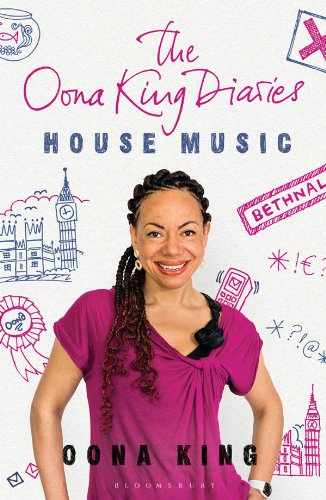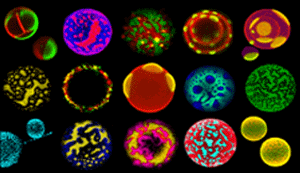When I was stretchered out of the House of Commons in an ambulance, after collapsing on the floor after six hours of earth-shattering pain, one of the attendants whispered, “MPs aren’t allowed to die in the palace.” I remember thinking, although I was a supposedly healthy 32-year-old, “maybe I am actually dying”.
This is what others find hard to understand about endometriosis – it’s not just a “bad period”, it is agonising pain beyond belief. A gynaecologist examining me in A&E said: “I’m not surprised you’re crying, these cramps are the same as the second stage of labour.” It’s hard to feel like you’re in labour each month, yet infertility means you will never give birth.
Another time, as a teenager in Brent Cross shopping centre, I collapsed, overwhelmed by cramps that felt like someone was cutting out my abdominals with a meat cleaver. Struggling to breathe, I couldn’t talk. First-aiders anxiously surrounded me, waiting for the ambulance. When I summoned all my strength to whisper “period … it’s my period”, they all gave me an outraged look and walked away.
Too many women are left to deal with endometriosis alone. I haven’t had it so bad; excruciating pain for up to a week each month, yes, but the intensity of the pain isn’t necessarily related to the severity of the disease. Granted, infertility isn’t a great outcome when you would give your soul for a family. But adoption changed my world.
I had excruciating, debilitating life-straining periods from the age of 11 or 12. They have been going on for three decades-plus.
But three years ago my nightmare ended when a family planning clinic nurse suggested, by chance, I try Cerazette contraception pill. I was going on holiday and couldn’t see my GP, so I decided to go to the family planning clinic, and a random person told me about it. Cerazette only works for some women, but my relief at escaping the hell of endometriosis is indescribable.
It is a contraceptive pill, which I don’t need because of my infertility. My husband worried it may increase my risk of cancer, but I would prefer to die 10 years earlier than live with the periods I have.
Even if they told me I had increased my chances of cancer by 300%, there is no way I would go back to living with those periods.
The only solace I found, up until that point, was when I was 26 and working in Belgium. A doctor classified me as disabled due to endometriosis. I felt my pain had finally been legitimised by the medical profession, although obviously I still never mentioned it to anyone in the UK – least of all fellow MPs.
I remember one time in my party offices, I got hit really badly and I couldn’t get off the floor. I had three male assistants around me. I remember trying to crawl to get on to the chair. I couldn’t explain it to them. I was in too much pain. I’ve only been taken to hospital in an ambulance twice, but I’ve been hospitalised for numerous related issues, too many times to mention (colposcopies, endoscopies, myomectomies, seven failed rounds of IVF).
Five days of the month I was usually incapacitated. There were two days when I couldn’t move, and would often have to cancel visits or speeches. And another three days when I was like the walking dead – I was constantly in moderate to severe pain, but at least I could physically move around. I’d have these weeks when I was obliterated – the week beforehand I was in fear, and the week after I was in recovery mode. So one way or another it often affected me for three weeks. And there would be this one precious week when I was completely free of it, and it never crossed my mind.
I managed to cope in the Commons with difficulty. The last thing you want to be is a flakey MP who doesn’t turn up to hand out 200 achievement certificates to young people on stage. What made a huge difference is that when I became an MP – although I was only the 200th woman to be elected to parliament – the others there, like Harriet Harman, Tessa Jowell and Patricia Hewitt, made it much easier for me to survive. There were also some male MPs who really helped me when I had to go to the whips and ask for time off – like a typical woman I thought I couldn’t even ask, but I remember a male MP marching me straight in and saying, “She can’t stay for the vote, let her go home”.
To me, endometriosis made me feel like I was starring in a horror film. Depending on the day of the month, at any moment you might be sliced into pieces by a merciless and cruel tormentor. There were times when I was sitting on the green benches in parliament, knowing I was about to have to make a speech or ask a question at prime minister’s questions, feeling the first cramps begin, and thinking I was just going to slide off the bench. I got through it but I just can’t fathom why for over 30 years of my life I struggled with something so debilitating, which was recently fixed by chance. I don’t want other girls and women to go through 30 years of pain due to lack of expert knowledge and diagnosis within the medical profession.
It’s strange to have a disability that only appears one week in four. It’s stranger that a disease with such desperately debilitating effects has been ignored for so long. Until now.
• As told to Sarah Boseley

